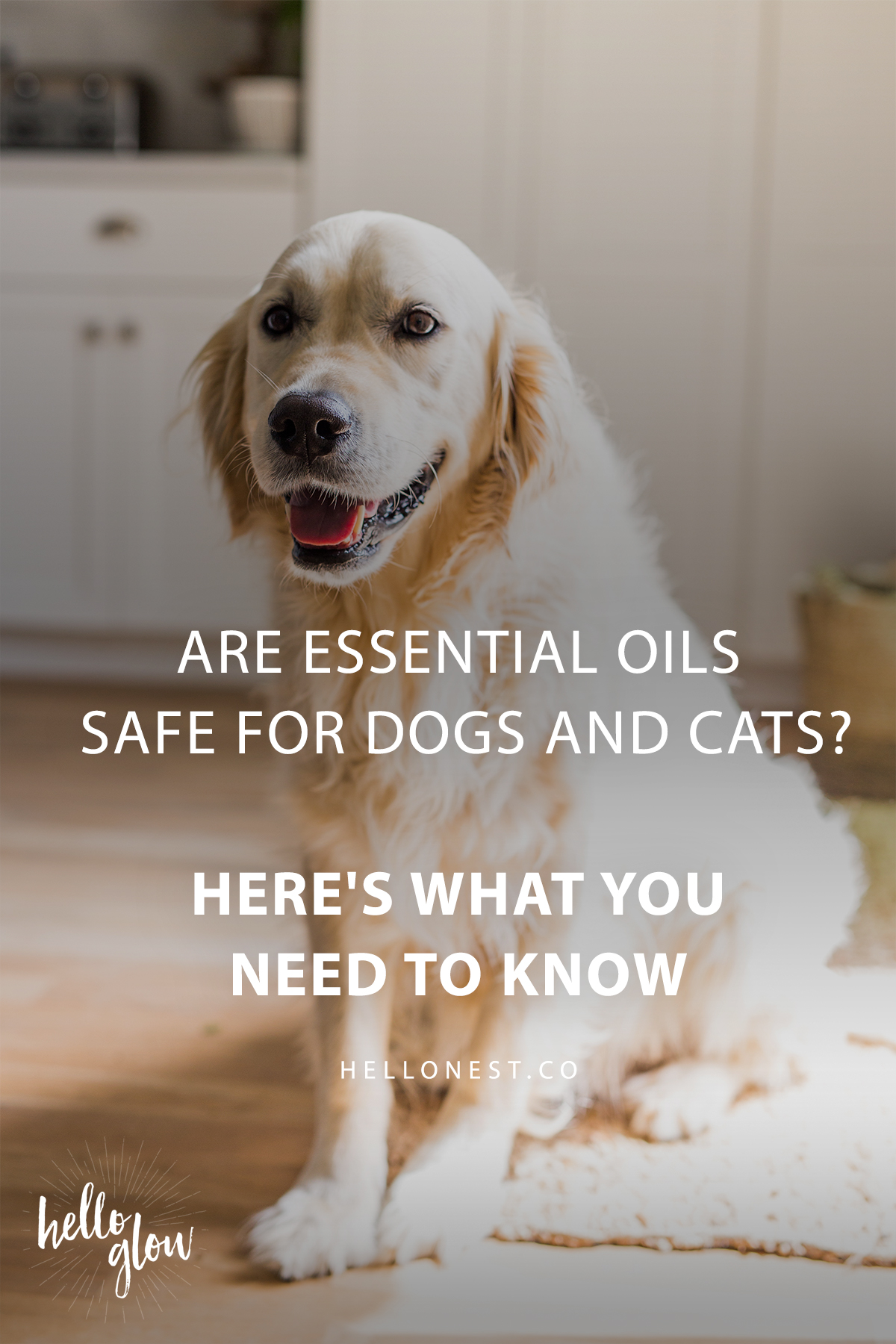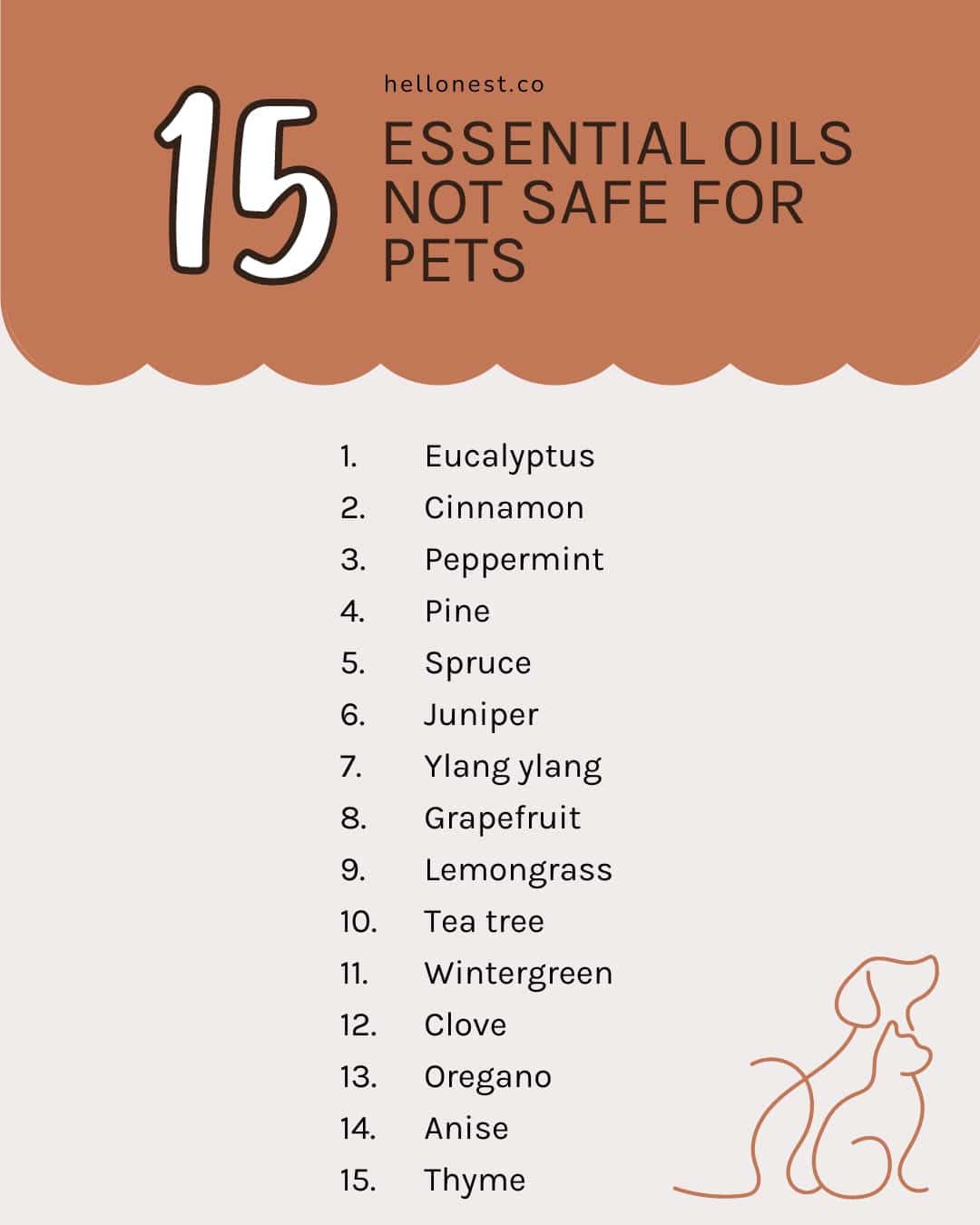Essential oils can be the most amazing additions to our natural home cleaning and body care regimens, but when it comes to using them on or around our pets, there is more than just the fresh scent to consider. There is conflicting research on which essential oils are best for our pets, and also on how they can be safely applied, but there is a general consensus on the ways in which pet owners should be cautious when using oils around their beloved animals.

Using Essential Oils Safely with Dogs and Cats
If you own a cat or dog and love using essential oils around your home, here are some considerations that should be made for the health and well-being of your pet:
Be mindful of their sense of smell
Dogs and cats have a keen sense of smell, so using high concentrations of any essential oil in your home can quickly become overwhelming to them. Pay attention to their behavior, and open windows if you pick up on any indications that the scents have become too strong for them.
Move your cats and dogs out of rooms where you use higher concentrations of essential oils. If you are deep cleaning bathrooms or kitchens with tea tree, lemon, pine, or eucalyptus (which are all great options with strong antibacterial and antimicrobial properties), open a window and wait until the scents have dissipated before allowing your pet back in.
If your pet has any known respiratory illness such as asthma, or wheezing, avoid using volatile oils in diffusers, incense, potpourri, or other vaporizers, as they can trigger respiratory distress in animals that may are already vulnerable.
Talk to your vet before using oils on your pet
Never feed essential oils to your pets, and check with your veterinarian about whether or not oils can be safely applied topically. Depending on the weight of your animal, the condition of their fur or skin, and the reason you’re looking to use the oil, your vet may have very specific recommendations. When used topically, essential oils need to be diluted to the appropriate ratio, and always suspended in a carrier oil that is safe for your pet.
Avoid spraying essential oils on any bedding or furniture that your pet enjoys sleeping on. The oils can seep into their fur and skin, or be ingested as they lick their fur, both of which can lead to toxicity depending on the oils used.
Since essential oils can be ingested by pets and also absorbed by the skin, oils should only be used in the environments of pets with healthy functioning livers. In general, essential oils should not be used around very young or elderly animals.
Look for adverse reactions
Keep your eyes open for any adverse reactions that could be related to essential oil use around your pets, such as excessive drooling, shaking, vomiting, wobbling, wheezing/panting, scratching their fur, or skin irritations. It is important to note that if you use essential oils extensively in your home around your pets (without appropriate ventilation), effects may initially be subtle yet can accumulate over time.
Store all essential oils out of reach of your pets, much as you would keep poisons away from children. If you suspect that your pet has gotten into your oils, reach out to your vet to investigate the best course of action.
Essential oils not safe for dogs and cats
The following oils are widely considered to be unsafe or toxic for both dogs and cats. When using these oils for cleaning or refreshing spaces, be sure that there is adequate ventilation, and that your pet cannot get into contact with the oil:
- eucalyptus
- cinnamon
- peppermint
- pine/spruce/juniper
- ylang ylang
- grapefruit
- lemongrass
- tea tree
- wintergreen
- clove
- oregano
- anise
- thyme
In addition to the above list, there are a few more very commonly used oils that are shown to be toxic to cats:
- any other citrus (lemon, lime, bergamot, orange, tangerine, citronella)
- clary sage
- rose
- lavender
- sandalwood
By taking the right precautions, and following the trusted advice of your veterinarian, essential oils can be used safely and effectively in your home without issue. Remember to keep rooms ventilated, and to give some space for your pets to move away from the spaces where scents may be stronger. Keep their sleeping surfaces free from oils, and be aware of your pet’s healthy behaviors so you may notice any changes that could arise by incorporating a variety of essential oils into your lifestyle.
14
Leave a Reply